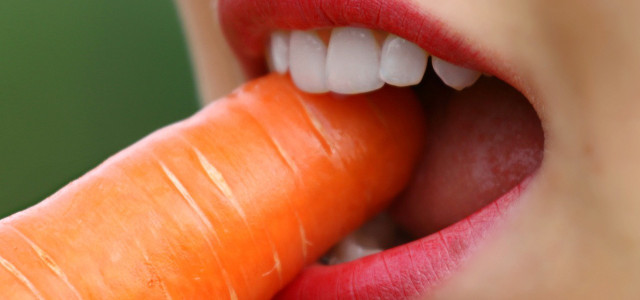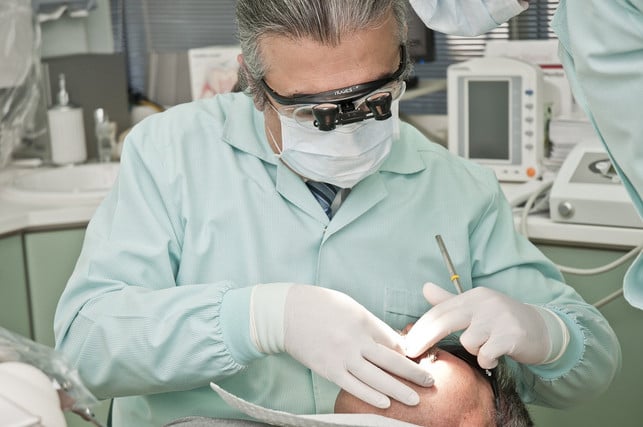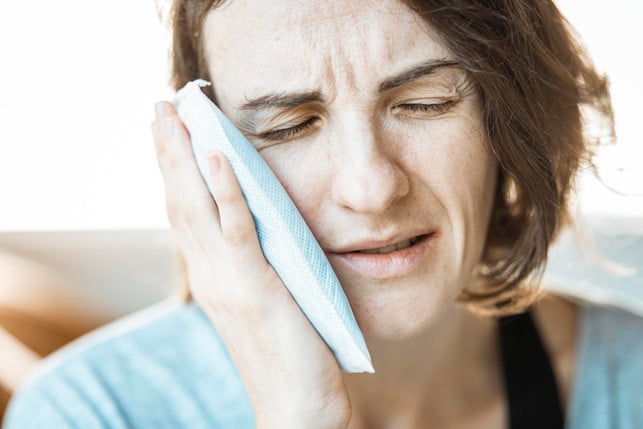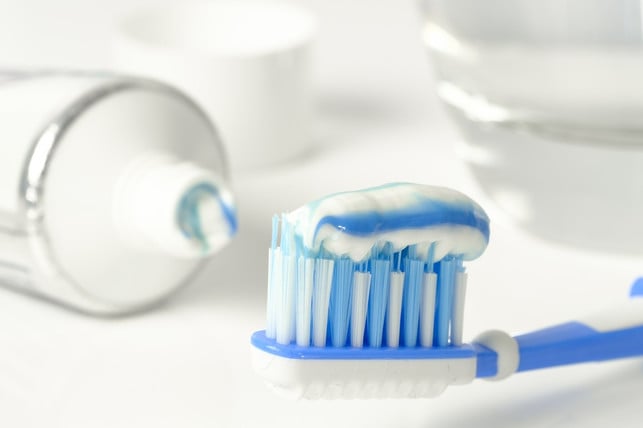
Bleeding gums are caused by bacteria that lead to inflammation of the gums. Here you will find tips on how to prevent bleeding gums.
Bleeding gums are uncomfortable and can be concerning if they occur frequently. The good news: You can usually prevent the problem without much effort. We’ll explain to you how bleeding gums occur, what you can do if you have bleeding gums and how you can ensure that bleeding gums don’t happen in the first place.
Causes of bleeding gums

Bleeding gums are usually a sign of mild inflammation. You’ll usually notice if you see blood while brushing or rinsing your teeth. For the medical layperson, it is difficult to tell what form of gum inflammation it is: it could be inflammation of the gums (gingivitis), but also periodontitis, in which the gums can recede and the teeth fall out.
According to the Barmer health insurance company, the following causes are conceivable:
- The main cause of gum inflammation is bacteria that settle in the gap between the tooth and the gums. Hard-to-reach areas are sometimes not cleaned adequately when brushing your teeth, which means that the bacteria are not removed. Inadequate oral hygiene is therefore one of the main causes of bleeding gums.
- Small injuries to the oral mucosa can cause bleeding gums. Such injuries can easily happen if you use dental floss incorrectly, apply too much pressure when brushing your teeth, or burn your mouth. Improperly fitting dentures can also lead to such injuries and thus bleeding gums.
-
Hormonal changes can also affect the gums. The hormonal balance can change during puberty, pregnancy or taking the pill. This makes the gums more sensitive and prone to bleeding gums.
- Medications such as antiepileptic drugs or antihypertensives can also cause the gums to swell and the gums to bleed.
- Some diseases such as diabetes, HIV infection or tumors can cause bleeding gums.
- A nutrient deficiency can lead to bleeding gums.
- Last but not least, your lifestyle influences your gum health. Smoking, stress and frequent alcohol consumption can cause bleeding gums.
When do bleeding gums need medical treatment?

According to Barmer, bleeding gums can, in the worst case scenario, lead to periodontitis. This can lead to tooth loss. It is therefore important to maintain good oral hygiene and, above all, to take recurring bleeding gums seriously and have them checked by a doctor if necessary.
You should see a doctor if you have bleeding gums if:
- you often have bleeding gums
- your gums are bleeding heavily
- Bleeding gums last longer
Slight bleeding every now and then is usually not a cause for concern. If necessary, just mention this at the next check-up appointment.
This is how you prevent bleeding gums

According to Barmer, you can prevent bleeding gums with these remedies:
- Maintain good dental hygiene. Use a soft toothbrush and brush your teeth at least twice a day using the vibration technique (short, shaking movements). Both are gentle on the gums. Make sure to brush all areas thoroughly, especially at the gum line (More information: How to brush your teeth correctly with sustainable products). An electric toothbrush can make this even easier.
- It is very effective if you clean the spaces between your teeth with dental floss once a day. Interdental brushes can also help. Caution: If you never floss, your gums may bleed initially. If it doesn’t get better after a week, talk to your dentist about it.
- Smoking significantly increases the risk of periodontitis (and of course other diseases). Even if it is difficult: Unfortunately, there is no real alternative to quitting.
- A professional teeth cleaning in the dental practice costs money, but it can also help. Most health insurance companies cover the costs for this. It’s best to find out more in advance.
- Some medications can cause gum inflammation. If you take medication regularly, ask your family doctor.
-
Avoid or reduce your consumption of high sugar drinks such as cola or lemonade. They damage both the tooth structure and the gums themselves.
- Use a gentle toothpaste (without harsh additives). You can also make your own toothpaste.
Edited by Jennifer Watzek
Read more on Techzle\.com:
- Gum inflammation – these home remedies help
- Fluoride: important or toxic for healthy teeth?
- Vegan toothpaste: 4 recommended natural cosmetic brands
** marked with ** or orange underlined Links to sources of supply are partly partner links: If you buy here, you are actively supporting Techzle\.com, because we then receive a small part of the sales proceeds. More info.